246: Peak Oil - called July 2008 - massive switch needed despite $35/bbl oil
12-29-2008
PropertyInvesting.net team
Oil prices at $35/bbl are too cheap. And “Peak Oil” has arrived.
Oil production now in decline: When oil prices rise, supply normally follows suit in a period of 1-3 years depending on how quickly wells and new developments can be bought on stream or accelerated.
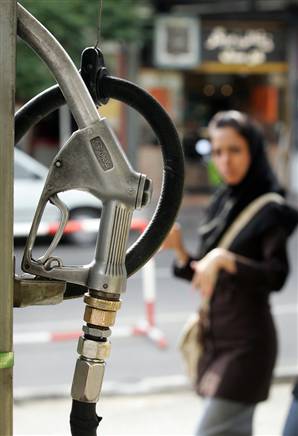 When oil prices crash, investment is deferred or cancelled because:
When oil prices crash, investment is deferred or cancelled because:
- Banks will not lend as oil reserves fall (economic reserves drop)
- The economic rational to proceed with development deteriorates
- Supply is cut by OPEC countries to encourage oil prices to rise
- Heavy oil and marginal oil developments become uneconomic – risky developments are deferred
- Exploration expenditure is drastically reduced - less oil is discovered
The world had a massive shock when oil prices sky-rocketted from $10/bbl in 1999 to $147/bbl early July 2008 (we predicted in June 2007 oil price would rise to $125/bbl by end 2008 - we were also surprised how quickly oil prices rose and even more that they crashed). Such prices in large part triggered a global recession. Politicians and the business world said “enough is enough, we cannot allow people's economic livelihoods to be affected so severely by external influences such as oil prices – we need to look for alternatives”.
Just as the momentum was building for change, oil prices crashed to £35/bbl and the world is now getting used to oil prices at low levels again – a sigh of relief – the nightmare is over!
Do not be fooled. The problems are festering just beneath the surface. OPEC has cut oil production by 3.5 million barrels a day from its peak July 2008. It’s likely 70% compliance will take off 2.5 million barrels from circulation out of 86.5 million bbls/day by January 2009 compared with production rates of peak early July 2008.
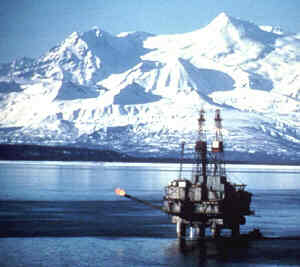 Because developments are being cancelled and deferred, the increase in supply of ca. 0.5 million bbls/day we predicted in late 2007 (assuming ca. $100/bbl oil price) will probably drop to a depletion rate of ca. 1 million bbls/day per year from now onwards at ca. $40/bbl. World oil we believe is now in decline – terminal decline – and it will not reach it’s peak of early July 2008 ever again. We are calling Peak Oil – July 2008 – and it will never recover to such levels. This is according to our latest models – showing the bottoms-up build of all countries annual production rates. By end 2009, just as the global economies will start coming out of recession, we now predict that when OPEC and non-OPEC finally decide to turn on the taps – nothing will happen. Like a car with a flooded engine - you put your foot on the accelerator and nothing happens. It will at best stay level but it’s more likely to keep drifting slowly downwards. To repeat – never again will we EVER see oil production rates above 86.5 million bbls/day we saw in July 2008. This peak coincided with oil prices spiking to $147/bbl and the global economy tail-spinning into recession. It also more or less coincided with 50% of all oil reserves having been produced from late 1800s to July 2008. It's downhill from now on - with regret.
Because developments are being cancelled and deferred, the increase in supply of ca. 0.5 million bbls/day we predicted in late 2007 (assuming ca. $100/bbl oil price) will probably drop to a depletion rate of ca. 1 million bbls/day per year from now onwards at ca. $40/bbl. World oil we believe is now in decline – terminal decline – and it will not reach it’s peak of early July 2008 ever again. We are calling Peak Oil – July 2008 – and it will never recover to such levels. This is according to our latest models – showing the bottoms-up build of all countries annual production rates. By end 2009, just as the global economies will start coming out of recession, we now predict that when OPEC and non-OPEC finally decide to turn on the taps – nothing will happen. Like a car with a flooded engine - you put your foot on the accelerator and nothing happens. It will at best stay level but it’s more likely to keep drifting slowly downwards. To repeat – never again will we EVER see oil production rates above 86.5 million bbls/day we saw in July 2008. This peak coincided with oil prices spiking to $147/bbl and the global economy tail-spinning into recession. It also more or less coincided with 50% of all oil reserves having been produced from late 1800s to July 2008. It's downhill from now on - with regret.
The disturbing thing is the depletion (or decline) of global oil production is now being masked by OPEC production cuts. But a cut of 2.5 million bbls/day will probably take about 2 years to use up – so by mid 2010 shortages will become evident. They will be masked until then.
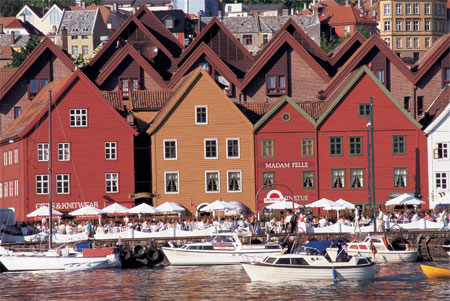 Switch to alternatives – NOW: The only way out is to respond now to the proximal danger and start a massive switch away from oil to gas, electric, nuclear, renewables and coal (preferably clean coal). Algal biodiesel could help. Renewable biomass could also help. All alternatives need to be consider - but preferably not ethanol from corn - because in simple terms, this takes low cost food off the table of the poor.
Switch to alternatives – NOW: The only way out is to respond now to the proximal danger and start a massive switch away from oil to gas, electric, nuclear, renewables and coal (preferably clean coal). Algal biodiesel could help. Renewable biomass could also help. All alternatives need to be consider - but preferably not ethanol from corn - because in simple terms, this takes low cost food off the table of the poor.
70% of global oil is currently used for transportation, but in 20 years time, we’ll need all remaining oil for manufacture of plastics, drugs, cosmetics, airline travel, light weight manufacture, interiors etc. No alternative to airline kerosene is even close! Over half of all discovered oil has now been used. The easiest oil production has now been produced. The difficult higher cost oil is left. Decline rates could be steep - no-one knows for sure. UK is declining at 6% per annum. Norway a similar amount. Mexico by 10%. The world - a combination, in base case scenario could decline at a rate of 0.5-2.5% - but the low-side is more like 3 to 5%. We frankly do not see any increase of July 2008 levels - unless oil prices immediately increased to ca. $125/bbl. if there is any delay, which is most likely of course - it will be (and is) too late. The decline is setting in. It's just we cannot see it.
There wont be enough cheap oil to power transportation by cars and trucks in future years. We NOW need action to start a massive sustainable conversion of our car/truck fleets worldwide to electrically powered vehicles. This power should come from big efficient power stations – these can be renewables (tidal, wind, solar), coal and/or nuclear. Electric power generation would likely need to be increase by 30% and oil reduced by 50-70% by converting all vehicles to electric-battery power. The infra-structure needs to be put in NOW – no delay – .jpg) otherwise oil prices will start to sky-rocket again by end 2010. And this time it could be even worse - $200/bbl. When oil is short, there is no limit to the price people will pay for it’s use in high end products like plastics, drugs and airline fuel. Joe Blogg’s car/truck will be the last in line.
otherwise oil prices will start to sky-rocket again by end 2010. And this time it could be even worse - $200/bbl. When oil is short, there is no limit to the price people will pay for it’s use in high end products like plastics, drugs and airline fuel. Joe Blogg’s car/truck will be the last in line.
Peak Oil – now called: We now call “Peak Oil” or the time that oil reaches (or reached) it’s peak at early July 2008 – it is now behind us. We have started the decline. With low oil prices it will now be impossible to reverse this decline. We stand here to be corrected in future years. Another peak occurred in 2005, the mid 2008 peak was slightly higher. But with Russia, Mexico, USA, Norway and UK all in steep oil decline, with Saudi, UAE, Kuwait stable at best – and no other country showing any signs of increasing oil production significantly (apart from Angola in the next 18 months) – with Brazil, Iraq, Ghana and other countries years away from big increases – we believe we are now in terminal decline. Of a finite resource. Many of
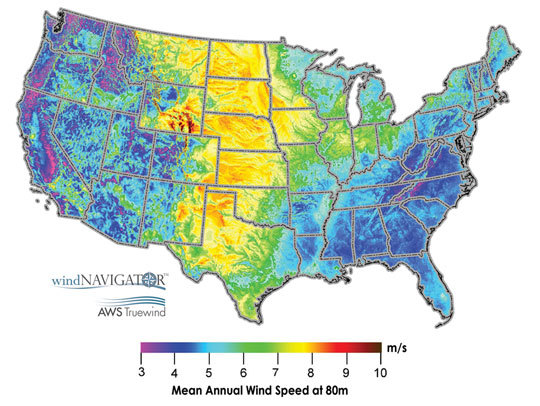 Speed of switch: Regrettably our prediction is that not enough will be done to switch to alternatives – high oil prices of $147/bbl will be consider a distant memory by mid 2009 as oil price languish well below $100/bbl, and by end 2010 – will see another almighty oil price spike, or at a time close to this. Then another short sharp recession and downwards correction in oil price. Turbulence.
Speed of switch: Regrettably our prediction is that not enough will be done to switch to alternatives – high oil prices of $147/bbl will be consider a distant memory by mid 2009 as oil price languish well below $100/bbl, and by end 2010 – will see another almighty oil price spike, or at a time close to this. Then another short sharp recession and downwards correction in oil price. Turbulence.
Instability: Furthermore, the imbalances created by a massive transfer or wealth from west to middle east, then a starvation of wealth flow to the middle east for periods will likely create tensions, problems with security and instability. Not good news at all. If oil prices crash, security deteriorates, then oil prices rise again, speculation takes hold, and the whole cycle repeats itself.
The world needs a balanced portfolio of energy and fuels to safeguard against this turbulence. And for the property investor, one can see it is very important to have stable financial, economic and political systems. Otherwise property prices will continue to boom and bust, or stay in a constant state of flux and lack of confidence.
President Obama – are you listening?: Some positive aspects are that President Obama recently appointed two key scientific advisers to his team who are both respected physicists – who we understand 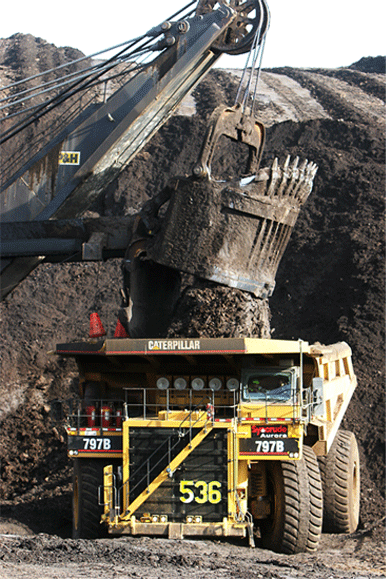 may finally get working on developing green infra-structure to support the conversion of cars from gasoline to electric. May be they saw our Special Report 238 of 23rd November 2008 – making a plea for this! (probably not, but seems like they’re on the same wavelength). Don’t let General Motors and Chrysler walk away for bail-out money without first getting them to commit to change those hugely inefficient gas guzzling monsters – into – we hope – clean burning electric powered efficient models. And they’ll then be able at last to effectively compete with
may finally get working on developing green infra-structure to support the conversion of cars from gasoline to electric. May be they saw our Special Report 238 of 23rd November 2008 – making a plea for this! (probably not, but seems like they’re on the same wavelength). Don’t let General Motors and Chrysler walk away for bail-out money without first getting them to commit to change those hugely inefficient gas guzzling monsters – into – we hope – clean burning electric powered efficient models. And they’ll then be able at last to effectively compete with
Instability and insecurity: Unfortunately, the economic turmoil globally will lead to increase in tensions in the Middle East and
Property Investors: In USA and UK - the effects of almost zero % interest rates, spread rates on mortgages reducing, oil prices staying relatively low and fiscal stimuli (infra-structure spending) and likely to see these economies kick-start by mid 2009. Meanwhile, higher Euro rates, hang-over from boom years and lack of fiscal stimuli will likely lead to severe recessions in Italy, Spain, Ireland, Portugal and Iceland and possibly Greece.

But expect further period of turmoil in Q3 2009 as
Property areas to avoid - Middle East,
Good investing in 2009…

